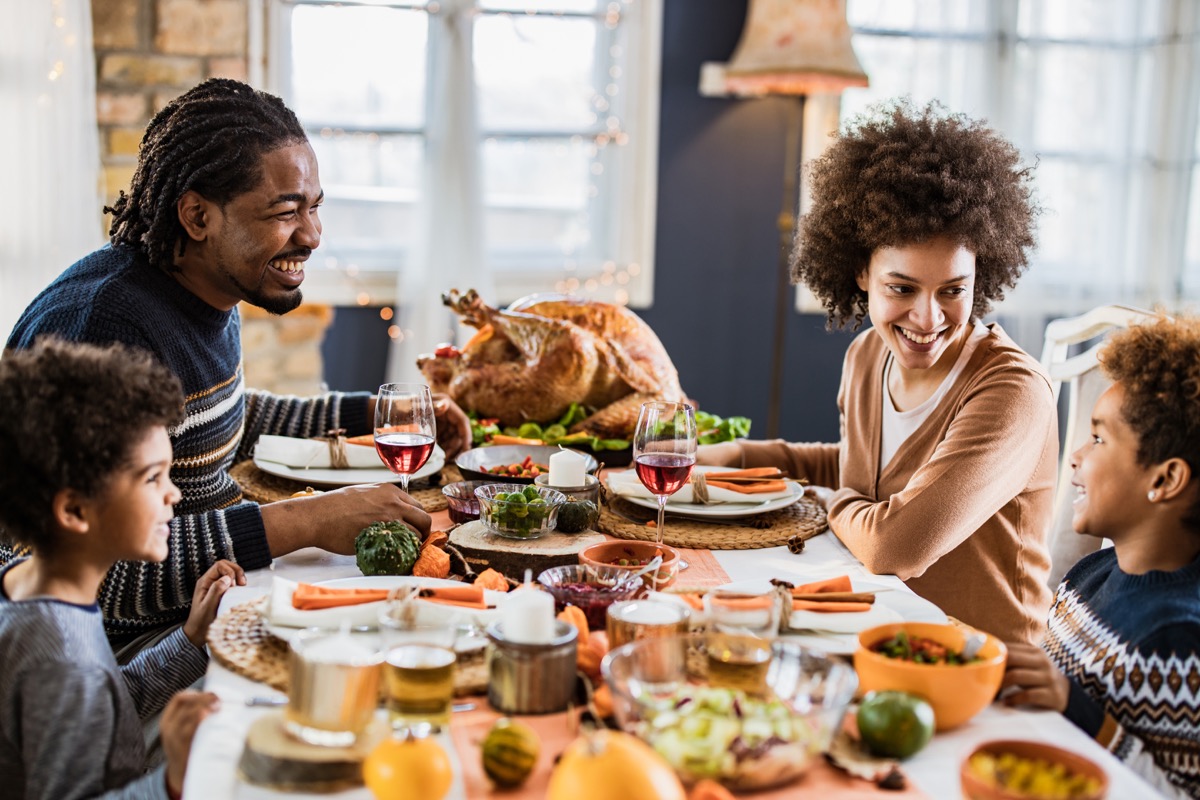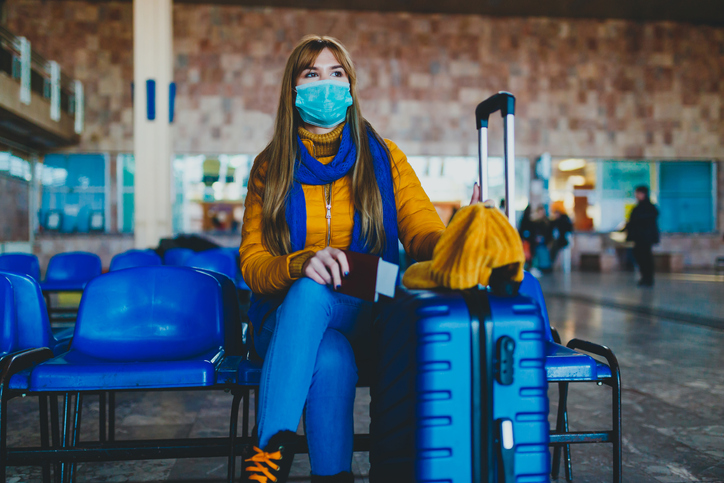During a call with reporters on Nov. 17, Henry Walke, MD, the CDC’s COVID-19 Incident Manager, said that the agency was doubling down on its public health guidelines and advising that all Americans stay home this year. “CDC is recommending against travel during the Thanksgiving period,” he said, according to CNBC, adding that there is “no more important time than now for each and every American to redouble our efforts to watch our distance, wash our hands and, most importantly, wear a mask.” Read on to find out what else the CDC has to say about Thanksgiving, and for more on the signs you could already be sick, check out These 4 Easy-To-Miss Symptoms Could Mean You Have COVID, Experts Say. Read the original article on Best Life. Besides travel, the CDC also advised against hosting any large gatherings, limiting celebrations to only people who live in the same household as you. But the agency also clarified that this group doesn’t necessarily include those who are immediate family but are returning from college, military deployment, or other remote living arrangements, recommending that those groups should quarantine for two weeks leading up to Thanksgiving. “People who have not been living in your household for the 14 days before you are celebrating should not be considered members of your household and so you should take those extra precautions, even wearing masks within your own home,” Erin Sauber-Schatz, MD, the CDC’s lead for Community Intervention and Critical Population Task Force, said during the press call. And to find out how you can monitor your risk, check out The Easiest Way to Tell If You’ve Been Exposed to COVID. While the CDC strongly advises against hosting groups, they still recommend that any gatherings with visiting friends or family should be moved outside. Those who arrive should also be wearing masks as much as possible, washing or sanitizing their hands regularly, and keeping six feet of distance from other guests. If there’s no way to keep everyone outdoors, the agency recommends keeping guests in a designated area of the house away from the kitchen or where food is being prepared, as well as designating a separate bathroom for them to use. And for more up-to-date coronavirus news, sign up for our daily newsletter. The CDC also cautioned anyone still considering travel that they can contract the virus while en route. This is especially true in busy transport hubs such as airports, train stations, and bus stations, where long lines and limited space can make it hard to social distance. “You can get COVID-19 during your travel,” the CDC’s updated guidelines warn. “You may feel well and not have any symptoms, but you can still spread COVID-19 to others. You and your travel companions (including children) may spread COVID-19 to other people including your family, friends, and community for 14 days after you were exposed to the virus.” And for more on how your area is faring against the pandemic, check out This Is How Bad the COVID Outbreak Is in Your State.ae0fcc31ae342fd3a1346ebb1f342fcb The CDC pointed out that making a mistake this year could endanger some of the most vulnerable members of the family, reminding Americans that 40 percent of those who are contagious show no symptoms. There could be tragic consequences even for those who believe they’re being careful. “One of our concerns is people over the holiday season will get together and they may actually be bringing infection with them to that small gathering and not even know it,” Walke said. “What is at stake is the increased chance of one of your loved ones becoming sick and then being hospitalized and dying around the holidays.” And for more on what could be putting you at risk, check out The 4 Places You’re Most Likely to Catch COVID During the Current Wave.



